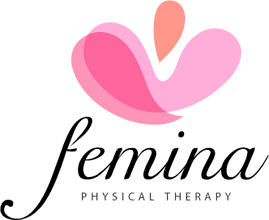What's the Link Between Urinary Incontinence and Postpartum Depression?
Postpartum Depression is a medical illness that negatively affects how you feel, the way you think, and how you act.
It typically arises due to a combination of hormonal changes, psychological adjustment to motherhood, and fatigue. Postpartum depression is said to affect between 5-20% of mothers depending on variable socioeconomic factors. Many people associate urinary incontinence as a common postpartum symptom. Prevalence of postpartum urinary incontinence figures vary due to diverse study formats, however it is predicted that bladder leakage is experienced in a quarter to half of all postpartum women.
In recent years, studies have concluded there is a strong link between both postpartum depression and urinary incontinence postpartum.
In a study by Juraskova et al, of the 3,701 women included in their research, 17.6% reported experiencing stress urinary incontinence and 17.3% reported experiencing depressive symptoms. This was the first birth for 50% of the study and second birth for 40%. This study observed risk factors for urinary incontinence and postpartum depression in the group of women observed. Stress urinary incontinence (urine leaking with an increase in intraabdominal pressure) was significantly associated with vaginal delivery, higher parity (2+), and high pre-pregnancy BMI (body mass index). Postpartum depression was more prevalent in those who had a pre-pregnancy history of depression and those who were divorced or widowed.
The analysis further explored associated conditions for both postpartum depression and urinary incontinence to be self reported poor health, back pain during pregnancy, and those who smoked prior to pregnancy to some degree. All told, the study showed that those with stress urinary incontinence at 6 weeks postpartum had a 1.5x higher risk of postpartum depression by 6 months after delivery.
Another study from Nam et al. had similar findings linking postpartum depression and urinary incontinence. The study looked at 83,066 women 6 months postpartum, with 6.49% having had urinary incontinence and 0.83% having postpartum depression. The study noted postpartum depression was higher in those women who also had urinary incontinence and spontaneous delivery and women without urinary incontinence who had cesarean delivery (c-section).
Finally, in a study by Lai et al. found that of the women analyzed in their study, 27.5% who had overactive bladder syndrome, concurrently suffered from depression. Those reported depression and overactive bladder experienced more severe urinary incontinence and greater impact of their quality of life compared to those who did not report depression.
With research backing the association between depression and urinary incontinence, you may be curious what you can do. As pelvic floor physical therapists, we help many people combat urinary incontinence. Pelvic floor muscle training, urinary habits, and urge suppression strategies have helped many women combat symptoms of urinary incontinence. From the nulliparous (no births) to the multiparous (2+ births) population, young and old, and the presence of overactive versus underactive pelvic floor muscles, pelvic floor physical therapy has been shown to decrease frequency or severity of urinary incontinence symptoms and is a top line treatment for these conditions. With decreased urinary incontinence symptoms, we hope to decrease risk of developing or prolonging symptoms of postpartum depression.
Screening for postpartum depression:
Screening for postpartum depression is a critical assessment performed by your postpartum care providers. It is the responsibility of your healthcare team to inquire about any changes in mood or thoughts after giving birth. That said, not all providers will actively screen for this. One of the primary screening tools for Postpartum Depression is the Edinburgh Postnatal Depression Scale (EPDS). It is a 10 question questionnaire that goes beyond the PHQ9 which specifically addresses anxiety. If you are diagnosed with Postpartum Depression, there are treatments available. Medical and therapy interventions will be available from either your primary care physician, psychotherapist, or OB-GYN. Some other techniques to help with depressive symptoms include joining a support group for new parents, prioritizing your health and sleep, finding time to exercise, making time to go out, and asking for help from partner, family, and friends. Pelvic health physical therapy can also assist you, as exercise has been linked to improving depression.
Below is a list of ways you can help treat or prevent urinary incontinence, with the first items on each list to be visiting your local pelvic floor physical therapist. We've broken this down between actionable items during pregnancy and after pregnancy - hot tip: they're almost identical!
Urinary Incontinence DURING Pregnancy:
- See a pelvic floor physical therapist to receive a full assessment and to pinpoint your tissue specific impairments.
- Train your PFM - mobility is just as important as strength
- Practice good toileting techniques and fluid intake habits.
- Education on what changes are happening to your pelvic floor and how that will impact you post pregnancy - be prepared!
Urinary Incontinence POST Pregnancy :
- See a pelvic floor physical therapist to receive a full assessment and to pinpoint your tissue specific impairments.
- Train your pelvic floor muscles - mobility is just as important as strength
- Practice good toileting techniques and fluid intake habits.
You can also check out our article on “5 Things You Can Do To Improve Postpartum Health”. To schedule an appointment with one of our pelvic floor physical therapists, contact us here.
Written By Carrie Morgan, SPT (DPT Intern)
References:
- Jurášková M, Piler P, Kukla L, et al. Association between stress urinary incontinence and depressive symptoms after birth: The Czech elspac study. Sci Rep. 2020;10(1). doi:10.1038/s41598-020-62589-5
- Nam JY, Park E-C, Cho E. Does urinary incontinence and mode of delivery affect postpartum depression? A nationwide population-based cohort study in Korea. Int J Environ Res Public Health. 2021;18(2):437. doi:10.3390/ijerph18020437
- Lai HH, Shen B, Rawal A, Vetter J. The relationship between depression and overactive bladder/urinary incontinence symptoms in the clinical OAB population. BMC Urol. 2016;16(1). doi:10.1186/s12894-016-0179-x
- OASH Office of Women’s Health. Postpartum depression. Postpartum depression . February 17, 2021. Accessed July 3, 2023. https://www.womenshealth.gov/mental-health/mental-health-conditions/postpartum-depression.










